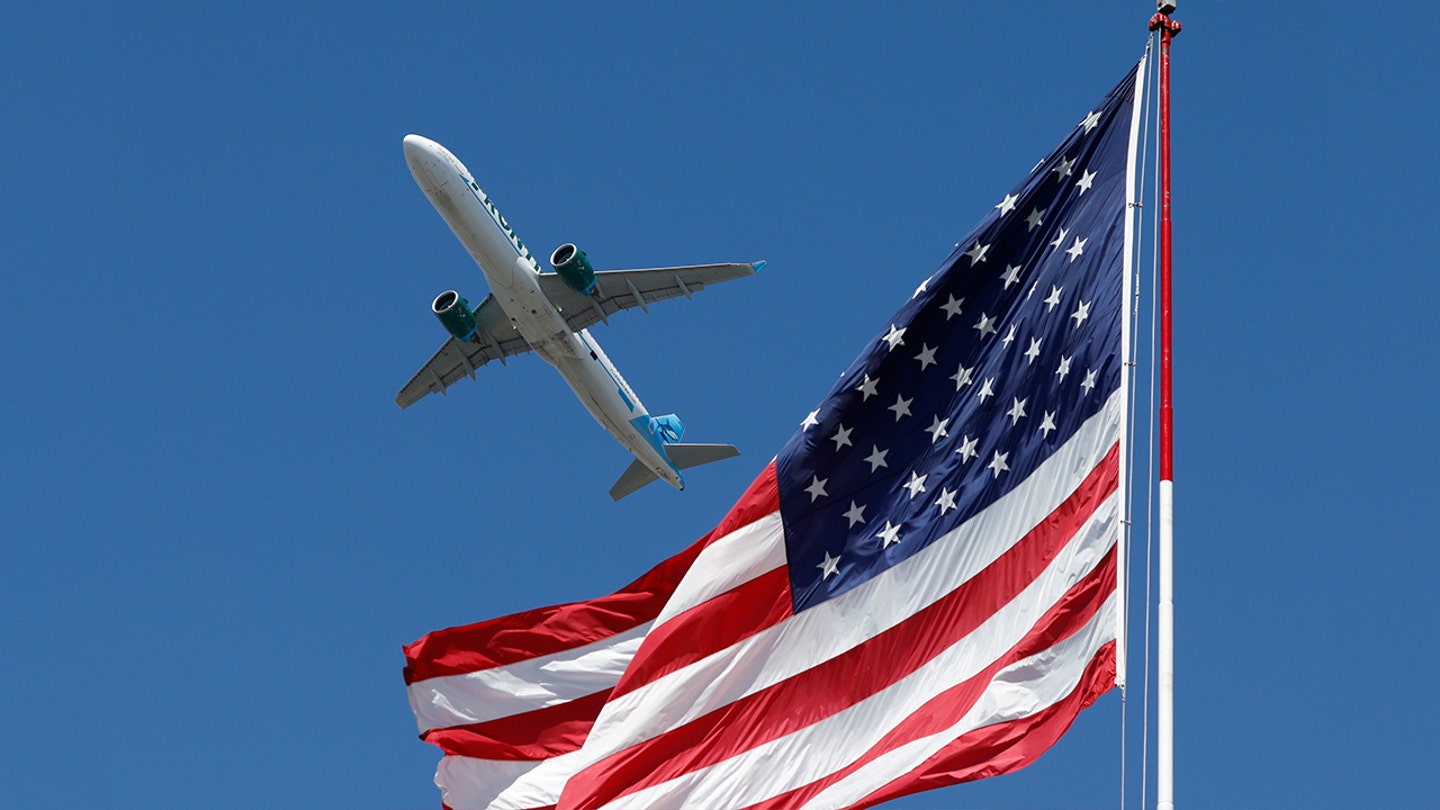With record numbers of people expected to drive and fly in the week surrounding Independence Day, those traveling for the holiday should prepare for heavy traffic and delays.
Nearly 71 million people are expected to travel between June 29 and July 7 around July 4, according to AAA estimates — that’s 5% more people than last year and 8% more than 2019.
“With summer vacation in full swing and the flexibility of remote work, more Americans are taking long trips around Independence Day,” Paula Twidale, senior vice president of AAA Travel, said in a statement. “We predict this July 4th week will be the busiest ever with 5.7 million more people traveling compared to 2019.”
FOURTH OF JULY FIREWORKS: 4 TIPS TO HELP VETERANS, OTHER PTSD Sufferers ENJOY THE HOLIDAY
Nearly 71 million people are expected to travel for the Fourth of July between June 29 and July 7, according to AAA estimates. (Kevin Carter/Getty Images/File)
The Motor Club predicts that 70.9 million people will travel 50 miles or more during that period – 60.6 million are expected to travel by car, an increase of 2.8 million from the same period in 2023.
The worst times to hit the road will be between 2pm and 7pm on Wednesday and Sunday, according to a transport data analyst at INRIX.
Based on the data it has collected, INRIX recommends that those traveling by car on July 3 and 4 should try to leave home before noon, while travelers traveling on July 6 and 7 should leave before 10 a.m.
“Drivers in major metro areas can expect the worst traffic delays on Wednesday, July 3, as they leave the city and on Sunday, July 7, when they return,” Bob Pishue, transportation analyst at INRIX, told Newsweek.
Pishue said that on busy holiday weekends, car journeys can take up to 67% longer than the usual travel time, so he recommends starting your drive on those days in the morning if possible.
PREPARE FOR YOUR FOURTH OF JULY PARTY WITH THESE ITEMS

The TSA warns that more than 32 million people are expected to pass through America’s airports between June 29 and July 8, an increase of 5.4 million people from last year. (Kevin Carter/Getty Images/File)
If you can’t leave first thing in the morning, experts recommend waiting until after the evening rush to travel.
After the New Year’s holiday, Independence Day is among the most dangerous driving holidays in the US, Omega Law told Newsweek.
“Holidays also often go hand-in-hand with holidays from school or work, which can mean more teenagers or young adults on the road who may have less driving experience, leading to dangerous driving and accidents,” a spokesman from California. the personal injury law firm told the paper.
The firm’s analysis of the National Highway Traffic Safety Administration’s Traffic Fatality Analysis Reporting System from 2017 to 2021 found that South Dakota was the most dangerous state to drive during the Fourth of July holiday. Fatal accidents increased by 244% in the state compared to any other day. In Washington, DC, fatal crashes increased by 182%, the firm told the media.
THESE 3 POPULAR EXPRESSIONS DATE CENTURIES ABOUT THE 4TH OF JULY AND AMERICAN HISTORY

The Fourth of July is celebrated with fireworks in New York City in 2023. (Fatih Aktas/Anadolu Agency via Getty Images)
Dallas, Denver, Salt Lake City, Los Angeles and San Francisco are the cities with the highest demand for rental cars during this year’s holiday week. The busiest pickup days were last Friday and Saturday and Wednesday, July 3.
Meanwhile, the TSA warns that more than 32 million people are expected to pass through America’s airports between June 29 and July 8, an increase of 5.4 million people from last year, the Independent reported. Peak travel day will be July 7, when 3 million people are expected to pass through the country’s 434 airports.
“We have been anticipating the arrival of the Fourth of July travel period and have planned our security operations to ensure we are prepared for the increase in travelers coming to the airport,” said TSA’s Federal Security Director for Colorado , Douglas Cruz. statement.
CLICK HERE TO GET THE FOX NEWS APP
Lower-than-average prices for domestic airline tickets contribute to an increase in flyers compared to this time last year, and domestic flight tickets will be 2% cheaper than last year, with the average price for a domestic round-trip fare averages $800, according to AAA ratings.
AAA recommends arriving at the airport at least two hours early, even for domestic travel. Parking must be reserved in advance and traveling with hand luggage can save time and money.
More than 4.6 million people are expected to travel by other modes of transportation, such as buses, cruises and trains, during the Fourth of July holiday period, which is a 9% increase from 2019, according to AAA.